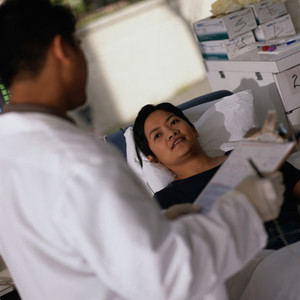On 12 October 2013, California Governor Jerry Brown vetoed legislation known as SB 598. Some believed this bill would have impeded access to biosimilars, but others believe it would have supported and strengthened patient-provider communication [1].
Biologicals are large, complex molecules, made mainly from animal, bacterial or yeast cells. Their molecular structures are inherently diverse and are not easily identified or characterized, making the development of biosimilars particularly difficult. For this reason biosimilars cannot be considered as generics of originator biologicals and in many cases ‘the process is the product, with even small changes in manufacturing process causing changes in the final molecule’.
This has led to the US Food and Drug Administration (FDA) requiring that most biologicals prescriptions be accompanied by a detailed Risk Evaluation and Mitigation Strategy (REMS). REMS outlines specific monitoring and patient education that must be completed to support informed patient consent within the prescribing treatment process, and is one of the reasons that Dr Janet Wyatt is questioning whether automatic substitution of biosimilars without notifying the patient and physician should be allowed.
Dr Wyatt argues that allowing a pharmacist with no knowledge of a patient’s health conditions to substitute a biological for an interchangeable biosimilar abandons the critical premise for pharmacovigilance defined by the FDA – frequent and in-depth patient–provider communication. This was recently reinforced in the February 2013 FDA’s Inspector General Report which cited the need for ‘strengthening patient and provider communication to improve monitoring of complex treatments’.
Dr Wyatt therefore raises the question ‘why eliminate the need for crucial patient and provider communication and health education?’
Conflict of interest
The author of the research paper [1] declared that there was no conflict of interest.
Editor’s comment
What is your opinion on the subject of biosimilars substitution in the US? Please feel free to share your thoughts via email or in the comments section below. Should pharmacists be able to substitute biosimilars without having to inform the patient and physician? Or is this undermining patient-physician communication?
If you are interested in contributing a research paper in a similar area to GaBI Journal, please send us your submission here.
Reference
1. Wyatt JS. Legislative efforts to limit prescription information sharing between patients and healthcare providers represent a serious threat to the health and safety of the US nation. Generics and Biosimilars Initiative Journal (GaBI Journal). 2013;2(4): 165. doi:10.5639/gabij.2013.0204.045
Permission granted to reproduce for personal and non-commercial use only. All other reproduction, copy or reprinting of all or part of any ‘Content’ found on this website is strictly prohibited without the prior consent of the publisher. Contact the publisher to obtain permission before redistributing.
Copyright – Unless otherwise stated all contents of this website are © 2013 Pro Pharma Communications International. All Rights Reserved.








 0
0











Post your comment